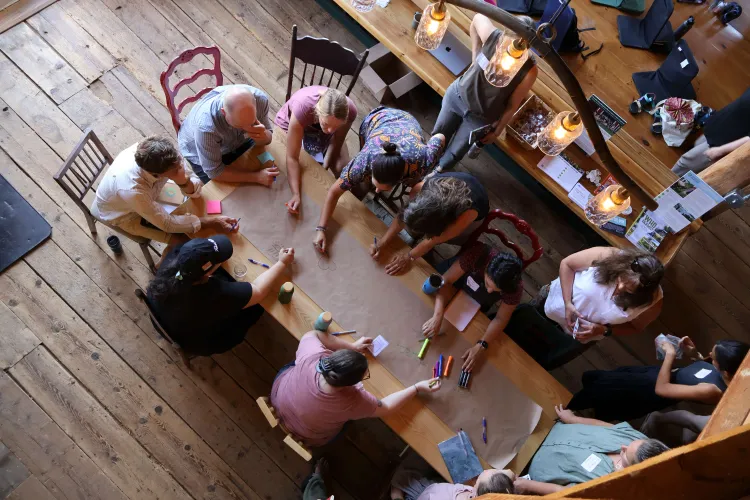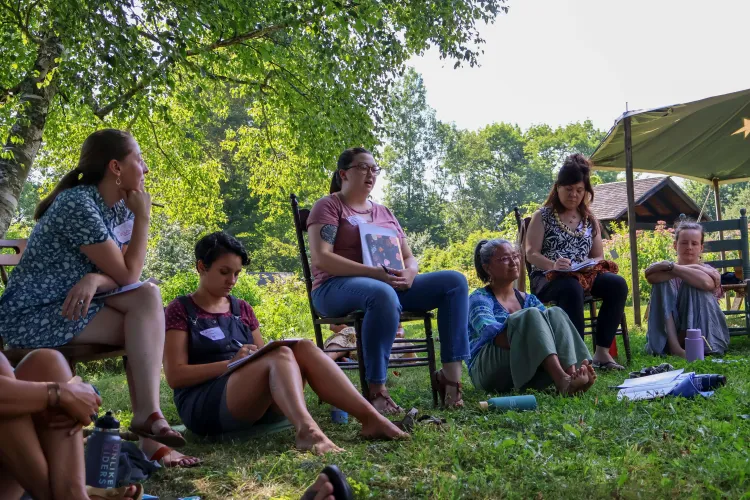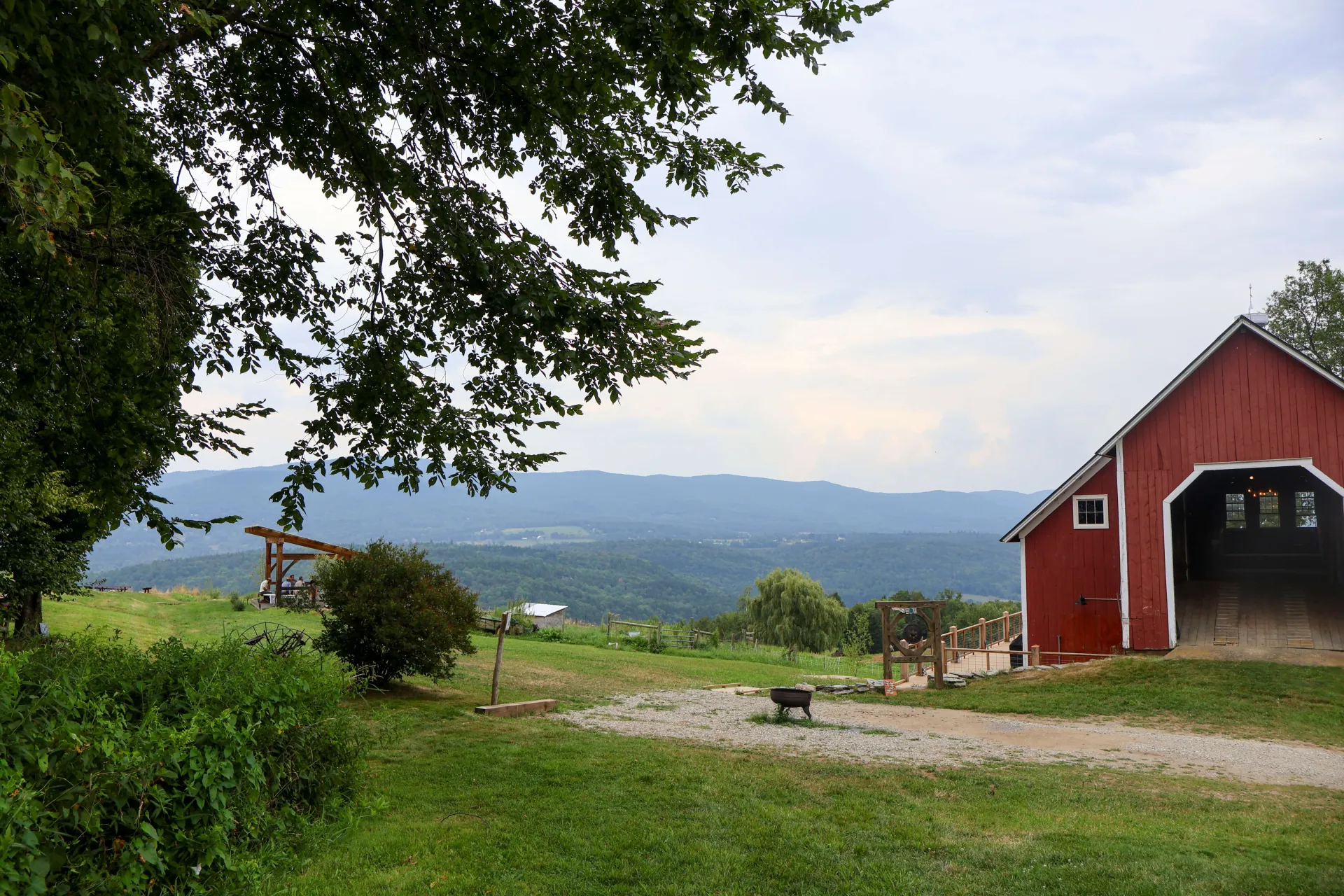“Rooted in Vision, Growing into Action: Advancing Regional Food System Transformation” - A Regional Food Gathering at Knoll Farm
On August 12 and 13, 2025, New England food system advocates, researchers, practitioners, and others from throughout the food system and beyond convened at Knoll Farm in the Mad River valley of Vermont for “Rooted in Vision, Growing into Action: Advancing Regional Food System Transformation”—a gathering organized by the UVM Institute for Agroecology (IFA). Nestled in the foothills of the Green Mountains, Knoll Farm—rich with blueberry bushes and grazing sheep—served as a container for conversations, connection, meaning making, and knowledge sharing. With the warm presence of the sun, participants sought refuge under the shelter of towering trees and porch overhangs, which were themselves living testaments to the land’s history—the very trees Peter Forbes and Helen Whybrow had planted upon becoming stewards of this land. For two days, we stepped away from the rhythms of daily life to immerse ourselves in a place-based experience with the strength of shared place, schedule, and routine as a backdrop. While the convening was fleeting with our return to respective homes, the threads of connections were pulled to all our corners of the region.

This gathering exemplifies the IFA’s approach to “co-producing and mobilizing knowledge to support just transformations in food systems.” From our perspective, rather than conducting traditional academic research, the convening itself serves as a methodology—bringing together diverse practitioners, researchers, and organizers to collectively analyze challenges and develop strategies for systemic change. Those insights have been detailed in the Knoll Farm Report that was shared with participants after the fact.
Emerging from the Gathering, and detailed in the report, were five guiding visions:
- Embracing abundance over scarcity,
- Repairing systemic harm,
- Shifting power to communities,
- Celebrating food culture and joy, and
- Living in right relationship with all beings.
While recognizing the immense obstacles—corporate control, racism, and systemic inequities—we focused on solutions rooted in collective strength and shared responsibility. There was a strong emphasis on leveraging resources like land, time, money, and knowledge to support a Just Transition, particularly through community-led initiatives, especially by folks of color and other identities that have traditionally been marginalized.
Participants emphasized co-created education and knowledge, not merely as a tool for sharing information, but as a practice that cultivates inner growth, resilience, and learning across generations. This orientation toward learning was identified as inseparable from the emotional and psychological resilience needed to sustain the work: resilience that is shaped by making space for grief, navigating confrontation, and practicing care. Conversations around governance echoed these themes, centering on the importance of community ownership rooted in place and supported through participatory structures. Weaving these all together, a deeper understanding emerged that change happens through relationship between people, land, and systems. Investing in these relationships is fundamental to building a future that can hold complexity, care, and collective possibility.
But we know that this gathering and the report are only as good as the steps taken from it, and we want to lead by example and share what next steps the IFA is taking after publication. The IFA is working across multiple disciplines – agroforestry, pedagogy and learning, and regional governance, just to name a few. We will be using the gathering and the emerging goals and solutions to analyze our own work in the region, asking the questions:
- How does our current work align with these goals and solutions, and where should we pivot or expand?
- What additional work should we undertake, and how will we build the networks needed to accomplish it?
- Who can we support with our resources that is already advancing these goals and solutions?
In addition to considering all the informative and crucial feedback, with an aim of making any subsequent gatherings more accessible and robust, we will also be dedicating time and resources, where available, to support emerging ideas that are directly or tangentially related to the gathering.
Finally, we recognize that it’s not possible to bring everyone together due to time, resources, and other realities. There were gaps in who could be present, and much work that can and will continue to be done to bridge those gaps in the future. We all know this work moves forward at the speed of trust, and we hope this gathering and the sharing of knowledge after will serve as one of those steps toward continuing to cultivate that trust into the future.

